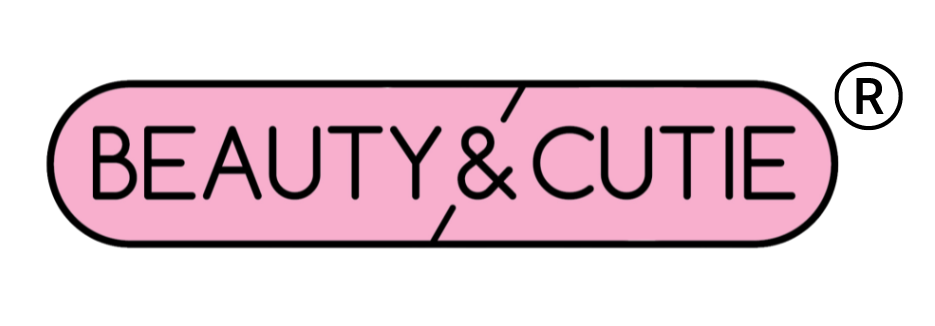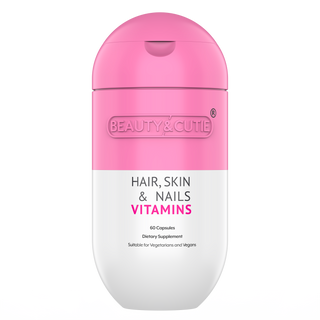Regardless of age or gender, experiencing hair loss can be upsetting for anybody. While DNA, genetics, and aging are some of the most frequent causes of hair loss, certain vitamin deficiencies can also exacerbate this condition. This in-depth guide will examine the connection between vitamin deficits and hair loss and especially address the query, "Which vitamin deficiency causes hair loss?" Understanding the significance of vitamins in your hair health is crucial, whether you're attempting to stop hair loss or are already experiencing it.
Overview Of Hair Loss and Its Causes
Hair loss, also known as alopecia, can occur as a result of various factors such as genetics, changes in hormones, stress, and medical conditions. The most typical type of hair loss is androgenetic alopecia, or male and female pattern baldness, and it is frequently inherited. Alopecia areata, an autoimmune condition, and telogen effluvium, a stress- or trauma-related condition, are other forms of alopecia.
The anagen phase (active growth), catagen phase (transition), and telogen phase (resting) are some of the stages that make up the complicated process of hair growth. fresh hair cells are created by the hair follicle during the anagen phase, and these cells subsequently undergo the transition and resting phases before dying to make place for fresh hair growth. Any interruption to this cycle can result in hair loss and thinning. Vitamin shortages can be a significant factor in preserving good hair development, even if they may not be the only cause of hair loss.
What Vitamin Deficiency Can Lead To Hair Loss?
A number of vitamins are essential for sustaining healthy hair growth. For instance, vitamin D is crucial for fostering hair follicle growth and reducing hair loss. Alopecia, a disorder marked by patchy hair loss, can result from a vitamin shortage. Similarly to that, vitamin B12 is essential for encouraging healthy hair growth because it feeds hair follicles and prevents thinning hair. This vitamin can make hair weak and brittle, which can result in hair loss.
How Vitamins Contribute To The Health Of Hair
In addition to their unique functions, vitamins collaborate to keep our hair healthy. For instance, vitamin C aids in the absorption of iron, which is necessary for the growth of healthy hair. Contrarily, vitamin E is an antioxidant that promotes the growth and repair of hair tissue. Red blood cells, which deliver oxygen and nutrients to the hair follicles, are created by the action of vitamin B6 in combination with other B vitamins. These vitamins are essential for supporting good hair development, along with other nutrients like zinc and selenium.
Vitamin D Deficiency and Hair Loss
A vitamin D deficit is one of the most prevalent vitamin deficiencies that can cause hair loss. This crucial vitamin aids calcium absorption, which is necessary for strong, healthy hair development. Scientific research has demonstrated that a vitamin D shortage can result in hair loss and thinning as well as a number of other health issues.
While some foods, such as fatty fish and egg yolks, may contain Vitamin D, sun exposure is the main way to obtain this vitamin. People who spend most of their time indoors or in areas with little sunlight may be more susceptible to vitamin D deficiency. Additionally, it may take longer for people with darker skin to develop the same level of vitamin D as those with lighter skin.
Vitamin B Deficiency and Hair Loss
A vitamin B deficit is another typical vitamin deficiency that can result in hair loss. Niacin, folic acid, biotin, B1, B2, B6, B12, and niacin are all members of the B vitamin family. Although all B vitamins are necessary for a healthy metabolism and the production of red blood cells, which are essential for healthy hair growth, biotin is particularly important for the health of hair.
In addition to other signs like exhaustion, irritability, and melancholy, a lack of any of the B vitamins can cause hair thinning and loss. However, a B12 deficiency is particularly harmful to the health of the hair because it can cause hair loss and alter the color and texture of the hair.
Several foods, including meat, fish, poultry, eggs, and dairy goods, contain vitamin B. However, certain health conditions, such as celiac disease, Crohn's disease, or digestive tract surgeries, may prevent some people from properly absorbing B vitamins. Supplements could be required in these situations to make up for the shortfall.
Vitamin E Deficiency and Hair Loss
Another necessary nutrient that may have an effect on hair health is vitamin E. The scalp experiences oxidative stress due to this vitamin's potent antioxidant properties. Dry, brittle hair that is more prone to breakage and split ends might result from a vitamin E deficit. In some situations, it might also result in hair loss.
Nuts, seeds, leafy greens, vegetable oils, and many other foods contain vitamin E. However, it's crucial to remember that most people get enough vitamin E through their diets, so deficiencies are uncommon.
Other Vitamin Deficiencies That Can Cause Hair Loss
In addition to Vitamin D, B, and E deficiencies, there are other essential vitamins that can cause hair loss when not present in sufficient amounts in the body. These include:
- Vitamin A: This vitamin is essential for cell growth and differentiation, including the cells that make up hair follicles. A deficiency in Vitamin A can lead to dry hair and scalp, as well as hair thinning and loss.
- Vitamin C: This vitamin is necessary for collagen production, which is essential for hair strength and elasticity. A deficiency in Vitamin C can cause hair to become weak, brittle, and prone to breakage.
- Iron: While not a vitamin, iron is an essential mineral that is necessary for healthy hair growth. Iron deficiency anemia is a common cause of hair loss, as this condition can disrupt the supply of oxygen and nutrients to hair follicles.
- Zinc: Zinc is another mineral that plays a crucial role in hair health. It is necessary for cell growth and repair, including the cells that make up hair follicles. A deficiency in Zinc can cause hair to become thin and brittle, as well as lead to hair loss in some cases.
How To Prevent Vitamin Deficiencies and Promote Hair Health
It is crucial to maintain a strong immune system and a well-balanced diet that includes a variety of nutrient-rich meals to prevent vitamin deficits and promote healthy hair. Lean proteins, whole grains, a variety of fruits and vegetables, as well as healthy fats, should all be present.
A healthy diet is not the only lifestyle aspect that can affect the health of your hair. For instance, stress can hinder hair growth and result in hair loss. As a result, it's crucial to reduce stress using techniques like deep breathing, meditation, and exercise. Aside from that, staying away from harsh chemicals and hot styling tools can help to protect hair follicles and advance general hair health.
Conclusion
In conclusion, a number of causes, such as vitamin shortages, can contribute to hair loss. Even though vitamins D, B, and E are frequently linked to hair loss, other vital nutrients like vitamins A and C and minerals like iron and zinc are also crucial for encouraging strong, healthy hair growth. Maintaining a balanced diet, controlling stress levels, avoiding harsh chemicals, and using heat styling equipment are all crucial for preventing vitamin shortages and promoting healthy hair. You may aid in preventing hair loss and promoting strong, healthy locks by adopting a proactive approach to hair health.
Final Thoughts
At Beauty and Cutie, we know that healthy hair is key to overall beauty. That's why we created a one-of-a-kind formula for our vitamins that support healthy hair, skin, and nails. If you're looking for a beauty regimen that will help you radiate from the inside out, you've come to the right place. Choose Beauty and Cutie for a gorgeous, healthy, and confident you!
Sources
- https://www.discovermagazine.com/lifestyle/does-vitamin-d-deficiency-lead-to-hair-loss
- https://myhairdoctor.com/the-beauty-of-vitamin-c
- https://www.insider.com/guides/health/diet-nutrition/vitamins-for-hair-growth
- https://vedix.com/blogs/articles/vitamin-e-for-hair-growth
*These statements have not been evaluated by the Food and Drug Administration. This product is not intended to diagnose, treat, cure or prevent any diseases.


